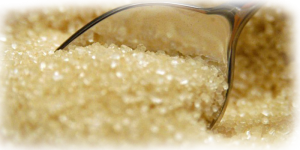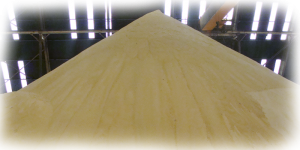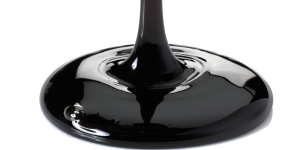ESA sugar products (listed below) meet standard specifications, which are based on market standards as well as requirements of high-end customers. In particular, the production facilities are continuously improving food safety standards, the aim of which is to establish food grade standards at all facilities.
Already, two of three mills have food safety certifications. As a result, ESA sugar has attracted a reputation for its high consistent quality coupled with efficient logistics management.
ESA also sells molasses, currently produced as a by-product of sugar production. There are no set standards for it – although pricing is on the basis of sucrose content. Molasses is sold only to local entities, with about 98% used by distillers.
Very High Polarization (VHP)/strong> 
Golden coloured, dry and free flowing sugar
Polarisation : Min 99.2 ºZ and Max 99.45
Moisture (%) : Max 0.12 (Bagged)
Colour (I.U) : 800-1300
Particle Size (mm) : Homogenous crystals, Grain Size: 0.60 – 0.85mm.
Refined Sugar
Granular crystal white sugar .
Polarisation : Min 99.9. ºZ
Moisture (%) : 0.04 Max
Colour (I.U) : 45 Max
Particle Size (mm) : Homogenous crystals, Mean Aperture: 0.45 – .065 mm.
Raw Sugar
Golden coloured sugar
Polarisation : 98.7 – 99.0 ºZ
Moisture (%) : Max 0.22
Colour (I.U) : 2500 Max
Particle Size (mm) : Min 0.6
Fairtrade
ESA is a certified marketer of Fairtrade sugar, under which all product types can be supplied. In the 2023/24 season, 49,000 tons were available for sale as Fairtrade sugar, from the production of the six Fairtrade-certified grower groups.
 The FAIRTRADE Mark is granted by Fairtrade International (FLO) to small producer organisations that comply with the Fairtrade Standards. The aim of Fairtrade is to encourage consumers worldwide to pay a “fairer price” for products originating in producer countries and produced by groups of small farmers or workers in plantations. Buyers of Fairtrade products are thus required to pay a Minimum Price for such products and additionally pay a Fairtrade Premium over and above the market price. As regards sugar, buyers are made to pay a minimum Fairtrade Premium of USD60 per metric ton.
The FAIRTRADE Mark is granted by Fairtrade International (FLO) to small producer organisations that comply with the Fairtrade Standards. The aim of Fairtrade is to encourage consumers worldwide to pay a “fairer price” for products originating in producer countries and produced by groups of small farmers or workers in plantations. Buyers of Fairtrade products are thus required to pay a Minimum Price for such products and additionally pay a Fairtrade Premium over and above the market price. As regards sugar, buyers are made to pay a minimum Fairtrade Premium of USD60 per metric ton.
On the other hand, farmers are required to comply with a set of stringent Fairtrade standards pertaining to the good governance of their respective organisations, protection of the environment and the respect of social standards. In the process, the farmers are also required to submit a Fairtrade Premium Plan, democratically approved by the members of their respective organisations, defining clearly the projects for which the Fairtrade Premium will be used. Such projects, which are meant to improve the quality of life of the farmers and their community, may extend to areas as diverse as production facilities, transport, education, training, and health care to name but a few.
Molasses
This is a by-product of sugar production. About 250 000 tons is produced annually. It is sold mainly to the two distillers based in Eswatini, with limited volumes sold to local customers for animal feed production.

